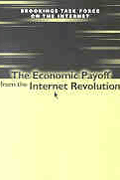The Patent Reform Act of 2005 is a sweeping act which covers virtually every aspect of patent law—with one glaring omission: it says nothing about software. Let me explain why you, dear reader, will be worse off for the exclusion.
The courts do not write law, they only interpret it, and in regards to the question of what is patentable subject matter, the Congress has left the court with a single sentence to interpret. In fact, it is a sentence penned by Thomas Jefferson himself: “Whoever invents or discovers any new and useful process, machine, manufacture, or composition of matter, or any new and useful improvement thereof, may obtain a patent therefor […]”
With all due respect to Jefferson, he probably did not fully think through how this sentence would apply to data processing with microprocessors. Bound to interpret the law, regardless of its potential economic consequences, the courts have ruled that this sentence covers virtually any sort of software, including web page designs, data structures, and even pure mathematical formulæ, such as US patent no. 6,434,582, for a “Cosine algorithm for relatively small angles”. This has created problems throughout the information economy, and there is no way that the courts can undo the damage with the single sentence they have to work with.
How software is different
Most patents cover an invention in a very specific field of endeavor, such as pharmaceuticals. All pharmaceutical companies must remain aware of existing patents owned by their competitors, and the same would hold for software companies: Microsoft will need to keep a close eye on Novell’s patents.
However, the key distinction between a drug and a method for using a computer is that few of us own the equipment or have the desire to manufacture drugs. Meanwhile, computers are ubiquitous—and as a result, so is software authorship. If you are reading this at work, there is probably someone in your building writing software right now: perhaps in the form of a company web page, or a script to make the accounting database work better. Thus, a patent on a drug creates potential liability for those companies in the pharmaceutical business, while a software patent creates potential liability for any company with its own website or software customizations, regardless of its business.
For example, SBC holds U.S. patents which were allegedly infringed by a broad range of web pages such as that of Museum Tour, a company which sells educational toys. Of course, the toy company could have avoided its dispute with SBC by hiring a patent attorney to do a full search of the software patent database before putting up its web site.
A law too absurd to follow
When you use the Record Macro feature of your word processor, you are writing a computer implemented technology which may infringe a patent—and if you put that document online, you are distributing your infringing technology worldwide. There are over 170,000 software patents filed with the U.S. Patent and Trademark Office, many very broad and all written in unintelligible legalese. It is clearly absurd to propose that every person in the U.S.A. must do a full patent search every time they record a macro, but that is theoretically what one would need to do to avoid liability.
The result is a law which is only partly taken seriously. Ronald Mann, a scholar at the University of Texas, interviewed venture capitalists and programmers, and found a resignation toward software patents: programmers do not do a patent search on every line of code, but instead simply assumed “[…] that there would be something in IBM’s [patent] portfolio that their product infringed.” Testimony after testimony to the Federal Trade Commission by businessmen and programmers said the same thing: to stay within the law requires such an absurd, paralyzing amount of work that nobody bothers. Conversely, one would be hard pressed to find a pharmaceutical company which does not bother with regular patent searches.
To give a more ironic example, the Recording Industry Association of America is famous for its crackdown on infringement of the intellectual property of the artists it represents, but a company named Altnet claims that the RIAA’s technological attempts to stop peer-to-peer networks are infringing its patents. Even the most vehement defenders of intellectual property are unable to ensure compliance with the vast array of software patent claims.
Simply put, it is effectively impossible for you or the people in your IT department to use a computer without infringing on a patent.
Political economy
Which brings us to the computer-shaped hole in the Patent Reform Act of 2005. There is clearly a need for clarification of the line between software and mathematics, and some rule to lift the cloud of liability from around our PCs. The press release for the bill describes the Act as “without question, the most comprehensive change to U.S. patent law since Congress passed the 1952 Patent Act.” If there were ever a place to bring Jefferson’s law into the digital age, it would be this bill. But by saying nothing, the bill implicitly approves the rulings by the courts that a patent on a cosine calculation is OK.
The intent of the examples above is to dispel a common misconception that almost all software is written by companies like Microsoft or IBM. By revenue, software authorship is evenly split between the centralized and the decentralized: a study by the U.S. Bureau of Economic Advisors found that an approximately equal amount of money is spent in the U.S.A. on packaged, purchased software and on software written in-house. By manpower, the centralized software providers are absolutely dwarfed by the decentralized IT departments, universities, and even twelve-year-olds with web pages.
But it is the centralized vendors who are best positioned to profit from patents. IBM, for example, has been granted more (hardware plus software) patents per annum than any other company on Earth for twelve years running, and has garnered over $10 billion from enforcing its portfolio of over 25,000 patents against smaller competitors. For its part, Microsoft has explicitly stated that it intends to expand its patent portfolio in the coming years and expand its enforcement in step.
A basic tenet of political economy is that lobbying happens only by the most concentrated interests, while diffuse interests will have more trouble organizing. For example, the Patent Reform Act of 2005, with its implicit approval of software patents, was introduced by Lamar Smith (R-TX), and the industry that gave the most campaign contributions to him in the last election cycle is—surprise—the computer and Internet industry. [From the Center for Responsive Politics.] Meanwhile, those who stand to lose from the patentability of software—which almost certainly includes the company you work for, and perhaps even you—have not had their voice heard.
For for information on this topic, please also consult Math You Can’t Use: Patents, Copyright, and Software, also by Ben Klemens.



Commentary
Op-edThe Computer-Shaped Hole in the Patent Reform Act
July 28, 2005